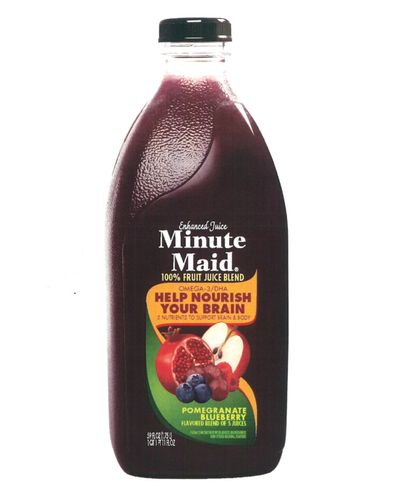Supreme Court says juice labels can be cause for suit
Makers not shielded to “mislead” or “trick” consumers

WASHINGTON – The Supreme Court opened the way Thursday for the makers of fruit drinks and other food products to be sued for false advertising if their labels would “mislead and trick consumers.”
A unanimous decision revived a false-advertising claim against Coca-Cola’s Minute Maid division for selling a drink that was called Pomegranate Blueberry even though it consists of 99.5 percent apple and grape juice. About 0.3 percent is pomegranate juice.
Among those apparently fooled by this label was Justice Anthony M. Kennedy, who wrote the court’s opinion. He commented during arguments in the case that he had once bought the juice and was surprised to learn that it contained only a tiny amount of the juices named in the label.
The false-advertising suit was brought by the wealthy Los Angeles couple who market POM Wonderful and other drinks that consist mostly of pomegranate juice.
Until now, many judges and food industry lawyers have maintained that food and beverage makers were shielded from lawsuits if their product labels accurately disclosed the ingredients in small print, as required by federal food-and-drug laws.
A federal judge in Los Angeles and the U.S. 9th Circuit Court of Appeals had thrown out POM Wonderful’s lawsuit, citing those regulatory laws.
But Kennedy said a separate federal trademark law known as the Lanham Act allows lawsuits for “unfair competition through misleading advertising or labeling.” There is no reason, he said, for shielding makers of fruit drinks and other products if their labels would fool ordinary consumers.
The Supreme Court did not finally decide the issue, but said the POM Wonderful suit may proceed.
Separately, the makers of POM Wonderful have been fighting in court against the Federal Trade Commission, which has accused them of overstating the health benefits of pomegranate juice.